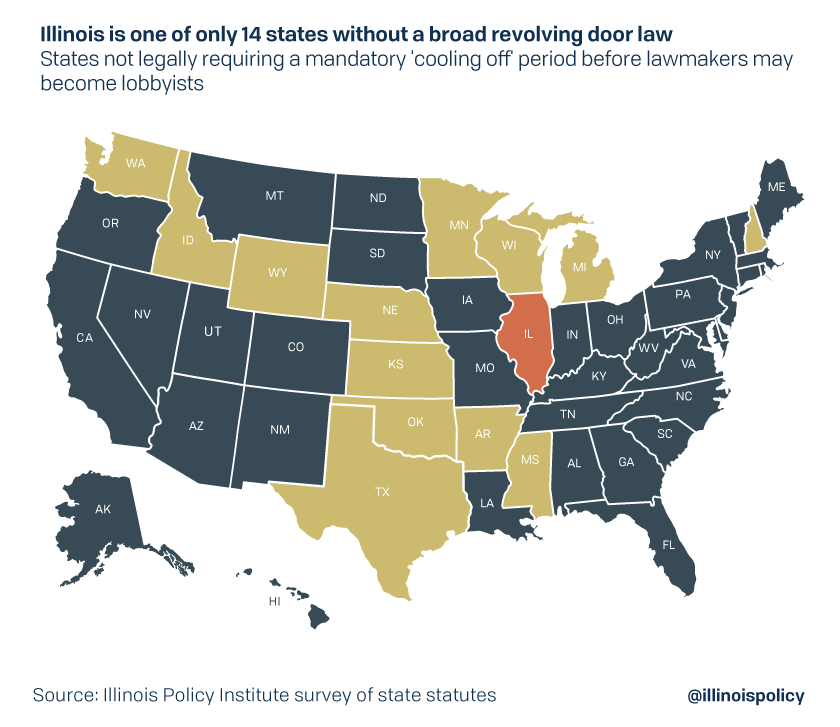Illinois ethics panel begins with small ethical lapse
Illinois Gov. J.B. Pritzker appointed a former state lawmaker to his panel on ethics and lobbying. Trouble was, the lawmaker had recently worked as a lobbyist.
Former state Rep. Steve Andersson served for about a day on Illinois’ Joint Commission on Ethics and Lobbying Reform before Gov. J.B. Pritzker discovered Andersson had worked as a lobbyist through June.
Andersson, R-Geneva, was appointed Dec. 4 after serving four years in the Statehouse and is currently a commissioner on the Illinois Human Rights Commission. Andersson became a lobbyist upon leaving office in January and worked as one through June.
The legislation that created the ethics commission stated appointees cannot be current lobbyists or have been one in the past five years. Pritzker corrected the mistake the next day by retracting Andersson’s appointment and replacing him with former Illinois Senate Minority Leader Christine Radogno, R-Lemont. Radogno served 20 years, leaving the Senate in 2017.
The misstep was quickly corrected, but the irony is notable: State leaders are creating the commission in response to federal investigations into lobbying and to pressure for tougher lobbying and ethics legislation. The group that is intended to help stop the revolving door between the legislature and lobbying briefly, and likely unknowingly, got stuck in the revolving door.
Both houses of the General Assembly approved the Joint Commission on Ethics and Lobbying Reform in November. Its goal is to reform the state’s ethics laws and examine the best practices from other state and local governments to find a fit for Illinois. It is a 16-member committee of individuals from both the executive branch of state government as well as the legislative branch.
Reform efforts follow numerous state legislators and lobbyists becoming the subjects of federal raids. Federal agents have specifically taken great interest in the relationship between House Speaker Michael Madigan and former ComEd lobbyist Mike McClain.
Illinois is one of just 14 states with no “revolving door” law to stop lawmakers from becoming lobbyists immediately upon leaving office. Under current law lawmakers are able to join the private sector to lobby the Statehouse as soon as they leave office. Many other states and the federal government mandate a “cooling off” period before former lawmakers can join the private sector and lobby their former colleagues.

Senate Bill 2314 proposed by state Sen. Heather Steans, D-Chicago, tries to change this. It would mandate a two-year “cooling off” period for lawmakers after leaving office.
This isn’t the first ethics commission in Illinois. An ethics task force was put together in 2009 after former Gov. Rod Blagojevich was impeached. Unfortunatly, many of its recommendations were not taken up, including fair maps, term limits for legislative leadership and rule changes to rein in the power of legislative leadership.
Corruption annually costs the state at least $550 million.
Lawmakers have the opportunity this year to change the direction of the state in terms of ethics. State leaders should make reforming Illinois’ costly culture of corruption their priority in 2020.